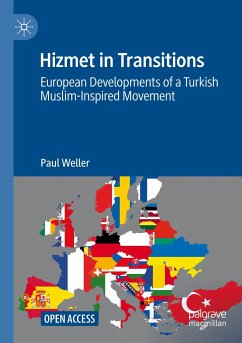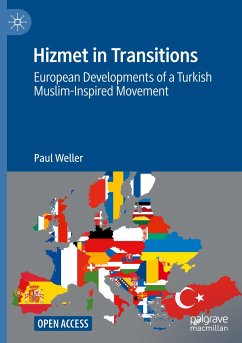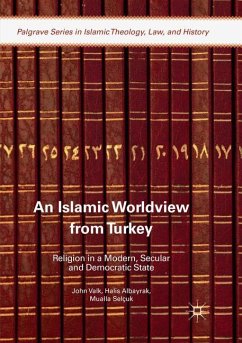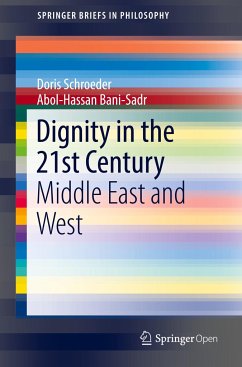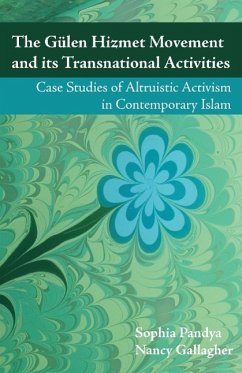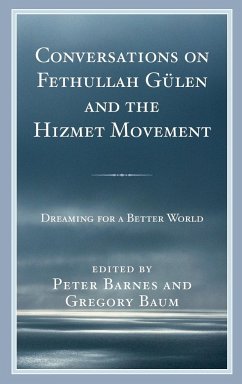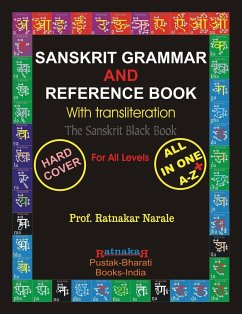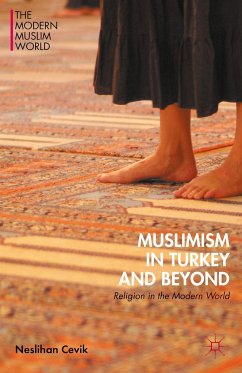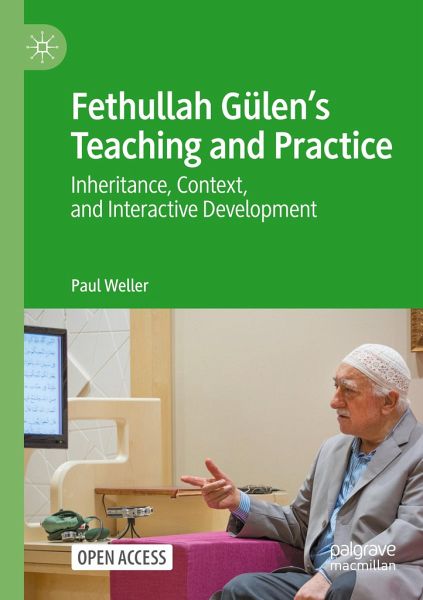
Fethullah Gülen's Teaching and Practice
Inheritance, Context, and Interactive Development

PAYBACK Punkte
0 °P sammeln!
This is the first book of its kind about the Turkish Muslim scholar, Fethullah Gülen, since the July 2016 events in Turkey, the trauma experienced by Gülen, and the disruption to initiatives inspired by his teaching, known as Hizmet. Drawing on primary interviews with Gülen and Hizmet participants and a literature review, this Open Access book locates the clear origins of Gülen's teaching in the Qur'an and Sunnah in dynamic engagement with their geographical, temporal and existential reception, translation, and onward communication. It argues that as Hizmet cannot be understood apart from ...
This is the first book of its kind about the Turkish Muslim scholar, Fethullah Gülen, since the July 2016 events in Turkey, the trauma experienced by Gülen, and the disruption to initiatives inspired by his teaching, known as Hizmet. Drawing on primary interviews with Gülen and Hizmet participants and a literature review, this Open Access book locates the clear origins of Gülen's teaching in the Qur'an and Sunnah in dynamic engagement with their geographical, temporal and existential reception, translation, and onward communication. It argues that as Hizmet cannot be understood apart from Gülen and his teaching, Gülen and his teaching cannot be understood apart from Hizmet, while exploring the heritage of both. A more geographically focused case study is set out in author Paul Weller's Hizmet in Transitions: European Developments of a Turkish Muslim-Inspired Movement, also published by Palgrave Macmillan (2022).






